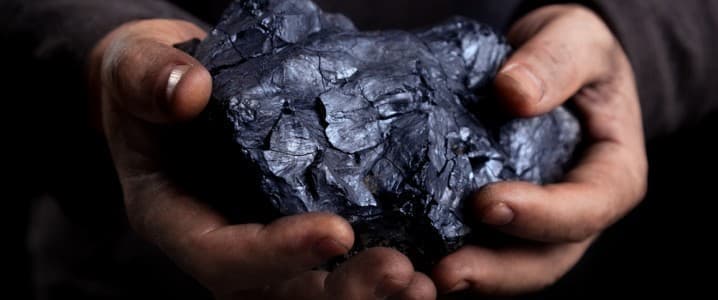Among developed nations, Australia is a black sheep. The nation still relies on coal for the majority of its energy mix, and its targets for cutting back on greenhouse gas emissions are half that of the US and the UK. The coal-rich country aims to cut emissions by just 26% from 2005 levels by 2030. “Canberra has also resisted joining the two-thirds of countries who have pledged net zero emissions by 2050,” the BBC reported in October. The Australian economy is largely dependent on coal. It is the second-biggest exporter of coal in the world (behind Indonesia) and coal is the nation’s second-biggest export. It should come as no surprise, then, that Australian politicians are unusually loyal to the world’s dirtiest fossil fuel, even as global scrutiny and climate pressure mount.
Although Australian coal producers are “chasing a shrinking market” as the world leans into the global clean energy transition and coal, in particular, is falling out of favor, Australian coal markets have recently been buoyed by Asian markets desperate for coal amid a global energy crunch. Last year marked a particularly turbulent time for the Australian coal industry due to an unofficial embargo imposed by Beijing on Australian coal imports, leaving huge shipping containers full of China-bound cargo adrift at sea. Though China hasn’t resumed its once-hefty consumption of Australian coal, plenty more markets have opened up, most notably India, whose own domestic coal supplies came dangerously close to running dry late last year.
While coal has persisted as a stalwart economic boon for Australia, it is an increasingly sticky wicket politically. Australian Prime Minister Scott Morrison's government is under huge pressure from global leaders and climate activists to do more to reduce the country’s carbon footprint. The window to reduce worldwide greenhouse gas emissions enough to avoid the worst impacts of climate change is rapidly closing. Last year, the United Nations declared a “code red for humanity,” as the impending climate crisis calls for unprecedented action on the part of the global community.
Related: Fossil Fuel Financing Under Pressure As Wall Street Caves To ESG Demands
And now, this year, Australia is responding to the mounting pressure to decarbonize by powering the world’s largest coal port with 100% renewable energy. The Port of Newcastle will still function as a coal port with an exportation average of 165Mt of coal a year, which is being seen by some as a clear example of greenwashing. However, the decision to power the port with renewable energy is being touted as just the first step of a more sweeping decarbonization plan. The Port of Newcastle says that it plans to “increase the non-coal portion of its business so that coal only makes up half its revenue by 2030.” Notably, this wording does not commit to actually decreasing the coal business, although the Port has also said that it wants to completely decarbonize by 2040.
As part of the plan to power the port with renewable energy, the Port of Newcastle has inked a deal with New South Wales wind farm operator Iberdrola. Port of Newcastle Chief executive officer Craig Carmody says that the company sees the writing on the wall, and believes that a pivot away from coal will be economically critical in order to avoid seeing the area’s economic bedrock collapse, like Newcastle after the steel industry dried up. “I would prefer to be doing this now while we have control over our destiny, while we have revenue coming in, than in a crisis situation where our revenue has collapsed and no one will lend us money,” Carmody was quoted by the Guardian as saying.
By Haley Zaremba for Oilprice.com
More Top Reads From Oilprice.com:
- Nigeria Is Losing Major Investors As Oil Theft Runs Rampant
- Cold Weather In North Dakota And Alberta Forces Oil Producers To Curb Production
- Oil Boom In South America Boosts FPSO Demand


















Better more coal export to asia that needs no fracking and change to LNG.
Australia is the world’s second largest exporter of coal after Indonesia with the world’s third largest reserves of coal after the United States and Russia. Australia’s economy is largely dependent on coal which provides the biggest share of its energy mix and it is Australia’s second-biggest export.
That is why Australia has resisted joining countries who have pledged net-zero emissions by 2050 and has only committed itself to cut emissions by just 26% from 2005 levels by 2030.
For most countries of the world with huge natural reserves of fossil fuels especially those dependent on the export revenue from these reserves, the economic benefits will most of the time trump the environment.
Dr Mamdouh G Salameh
International Oil Economist
Visiting Professor of Energy Economics at ESCP Europe Business School, London